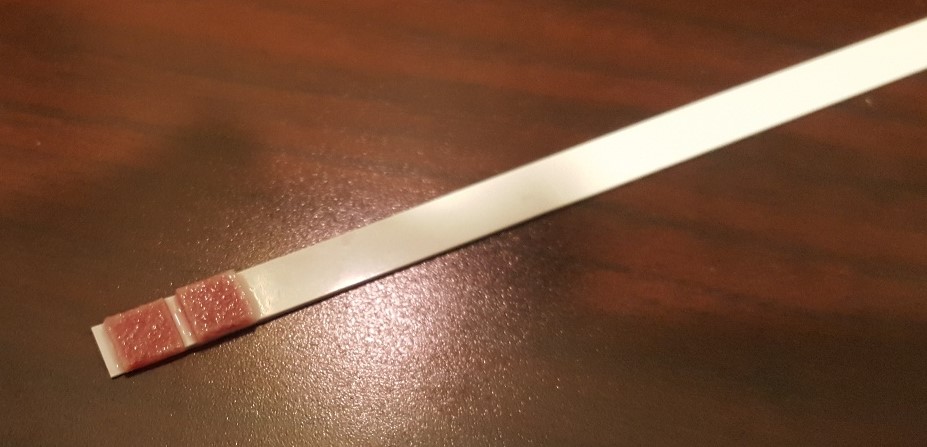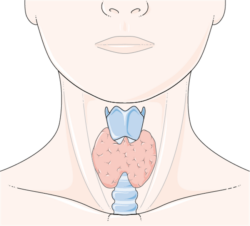Carrying a lot of excess bodily “cargo,” I decided to embark upon a bifurcated journey of nutritional ketosis, or keto for short. First, I seek to lose at least 20 percent of my body weight. Second, I want to compare my pre-ketosis blood test results — specifically the lipid panel — with the values after being in nutritional ketosis.
What is Nutritional Ketosis?
In short, nutritional ketosis is the metabolic state of burning fat while on a low-carbohydrate, moderate-protein, high-fat diet. The words “high fat” usually conjure a vision of the cardiovascular system laden with animal fats. But this is mistaken because mainstream medicine and news outlets equate “high fat” to high cholesterol, and believe high cholesterol heightens the risk of heart disease. Nothing could be further from the truth.
Consuming healthy saturated and non-saturated fat as part of a ketogenic diet makes the body feel great. Health benefits include: effective weight loss and maintenance; satiety; stabilized blood sugar and restored insulin sensitivity; and eliminated heartburn to name a few. Furthermore, my blood lipid panel values — cholesterols and triglycerides –- plummeted after keeping keto for about two weeks! My physician exclaimed, “Impressive!”
Scientific research including rigorous preclinical and clinical studies indicates that a ketogenic diet offers “a promising and powerful option for adjuvant therapy for a range of cancers.” For example, University researchers in Salzburg, Austria concluded in the February 2018 issue the journal Aging that a ketogenic diet induces ketosis that can starve cancer cells of energy while normal cells use their ketone bodies to survive. In addition, the reduction of blood glucose normalizes insulin, resulting in less fuel for cancer cells.
How Do I Enter Ketosis?
A ketogenic diet burns fat; whereas, high carbohydrate consumption burns sugar, usually not getting past the stores of glucose to achieve the state of burning fat. We know that many diets are replete with carbohydrates – bread, pasta, rice, sugar, cereal, processed foods – and, many people (including me) who ingest those carbs are waddling around wondering how they became overweight or obese. (I endeavor to become a former overweight person.)
Simply stated, get all sugar out of your diet. In today’s world eschewing sugar presents a daily challenge, given hidden sugars lurking in processed foods including dressings and sauces. Sugar is almost everywhere! But there are ways to eliminate it from your daily diet.
So, what can you eat? Mainly foods high in fat. Such as bacon, egg yolks, beef, and sausage. Also healthy fats such as avocado, coconut oil, extra virgin olive oil, and organic butter.
I understand that many of these foods are perceived as “no no’s” in our diets. However, they are necessary to achieve and maintain ketosis—to enjoy a healthier and slimmer life.
How Do I Test for Nutritional Ketosis?
Ketones, fuel for our mitochondria, are the overall product of nutritional ketosis for which testing can be easy, relatively inexpensive, and private.
The most common ketosis test involves urinating on a disposable strip containing a small chemical pad to detect the level of acetoacetate (AcAc) – the primary ketone body in urine. Another test can be performed at home by measuring beta-hydroxybutyrate (BHB) in the blood. A third way of evaluating ketones entails using a breathing device to measure acetone, the main ketone body in the breath.
Ketosis Versus Ketoacidosis
It is imperative to understand that when maintaining your blood sugar level in the normal range (less than 100 mg/dL) and producing insulin, the presence of ketosis is not harmful! However, if you encounter any doubters, including medical professionals, who claim that nutritional ketosis is unhealthy, see if they have confused “ketosis” with “ketoacidosis”.
Ketoacidosis occurs in diabetics who have both high blood glucose (greater than 240 mg/dL) and elevated blood ketone values (greater than 10 mill molar/L). Diabetic ketoacidosis occurs primarily in Type 1 diabetics who cannot produce insulin. Some Type 2 diabetics who have excess blood sugar and blood ketones as well as dependence on insulin also need to beware of ketoacidosis.
How Do I Attain My Ketosis Goals?
Often referred to as the father of medicine, Hippocrates wisely stated,
“If we could give every individual the right amount of nourishment and exercise, not too little and not too much, we would have found the safest way to health.”
Based on my recent experience with ketosis and moderate exercise (a rowing machine), I may have found the “sweet spot”: 1) steadily losing weight and inches, 2) feeling healthy and satiated, and 3) attaining and maintaining healthy cholesterol and triglycerides. And I am confident that my risk of cancer as well as a long list of medical conditions is being reduced as I enjoy delicious food and healthy exercise.
I penned this article with the intention of presenting the reader a brief introduction to a nutritional ketogenic diet. For additional information, I recommend consulting ketogenic diet books including:
- Keto Clarity. Moore with Eric C. Westman, MD. Victory Belt Publishing LLC. 2014.
- The Obesity Code. Jason Fung, MD. Greystone Books. 2016.
We Need Your Help
Hormones Matter needs funding now. Our research funding was cut recently and because of our commitment to independent health research and journalism unbiased by commercial interests we allow minimal advertising on the site. That means all funding must come from you, our readers. Don’t let Hormones Matter die.
Yes, I’d like to support Hormones Matter.
About the Author: Susan Rex Ryan enjoys research and writing about health as well as experiencing its amazing benefits. She authored the award-winning and perennial bestselling book called Defend Your Life about her journey with vitamin D3. Ms. Ryan recently wrote her second book called Silent Inheritance: Are You Predisposed to Depression about understanding depression and how to cope with it.
Visit Sue’s blog at smilinsuepubs.com for a plethora of health articles. Follow her on Facebook and Twitter @vitD3Sue.
© 2018 Smilin Sue Publishing, LLC. All rights reserved.













